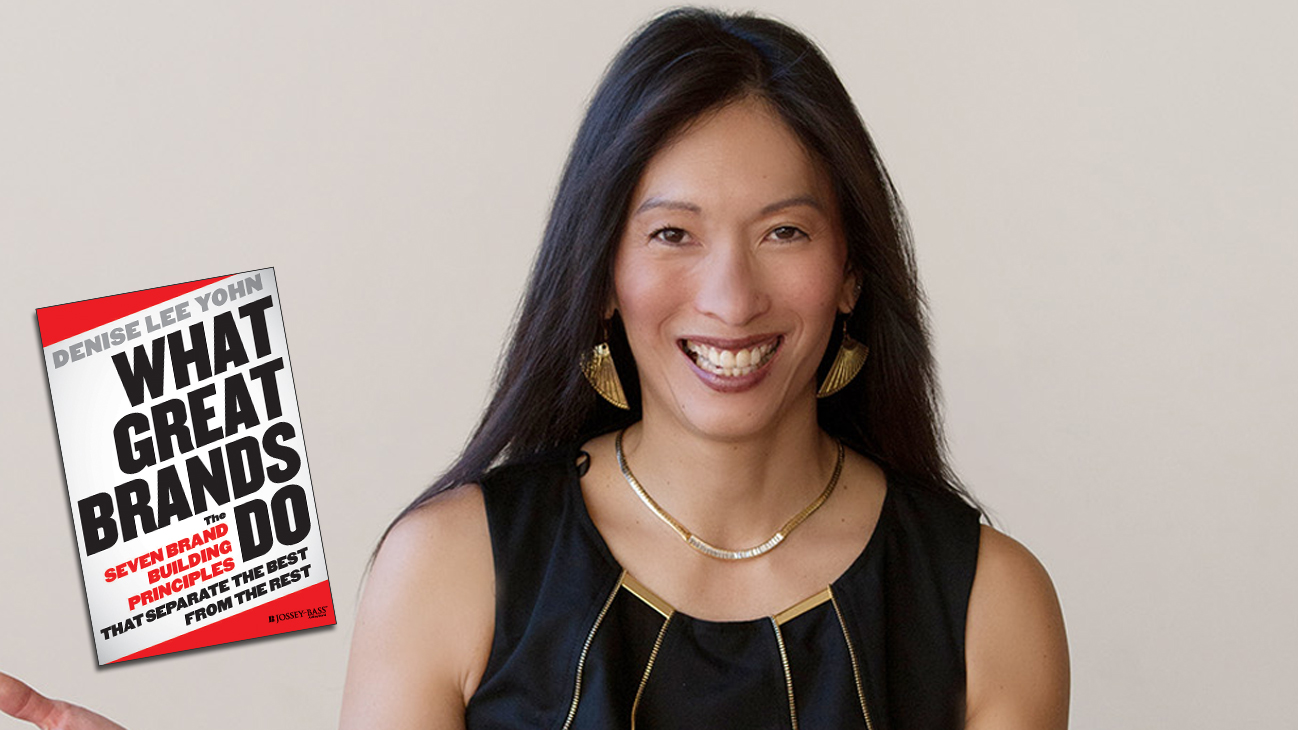Denise Lee Yohn is a brand building expert and the author of the new book, What Great Brands Do, which illustrates how the world’s greatest brands have elevated brand-building from a niche marketing function and how they use their brand as a strategic management tool that guides every aspect of their business. Our speaker Jackie Huba, an expert on customer loyalty and word of mouth marketing, had the chance to ask Denise some key questions about the book:
Q: In the book, you describe the “brand-as-business” approach – what is this and how is it different from traditional branding practices?
A. Most efforts involve creating an image to serve as the “face” of a company – creating a look and tagline to promote a business or launching a new advertising or social media campaign to reinvigorate it. But these activities simply serve to express a brand; great brands execute their brands. They elevate their brand from an external-facing message to a strategic tool for managing the business. They use their brand to shape their culture, focus their core operations, and design their customer experiences. This brand-as-business approach has proven to be far more effective than “branding.”
Q: One of the principles in the book is “Great Brands Commit and Stay Committed.” Why is this such a difficult principle to follow?
A. Committing to core values and aspirations requires people to ignore short-term results. It also requires making sacrifices. Great brands are willing to give up potential growth and profits in certain areas in the short term in order to maintain their focus. They’re willing to defy conventional wisdom in order to preserve their defining values and attributes. Amazon’s CEO Jeff Bezos practices this thinking by asking, “What’s not going to change over the next 10 years?” And he’s kept Amazon committed to three things—the best selection, the lowest prices, and the cheapest and most convenient delivery—which has set the brand up to thrive in the long-term.
Q. Give me an example of a company who you would say is a good illustration of the principles in your book and why.
Starbucks is often included in conversations about great brands but my research and analysis helped me see how it live out the principles behind so many other extraordinary brands.
Starbucks starts inside, meaning it starts brand-building by cultivating a strong corporate culture. Respect and dignity are some of the brand’s values and so the company’s 95,000 part-time employees enjoy full health insurance benefits, stock awards, and free coffee. Back in the depths of the recession, CEO Howard Schultz was under pressure to eliminate these benefits to save $300 MM+, but he refused because he feared that by antagonizing employees in that way, “We would’ve lost our soul.”
Starbucks avoids selling products – instead it seeks emotional connections with customers. From the start, Starbucks was never only about the coffee. Schultz started the brand to provide a “third place,” a place of social identity apart from home and the workplace, and the company remains committed to facilitating personal, human connections through the coffeehouse experience. All the additions and improvements Starbucks has made lately – better food, weekly featured apps and music downloads, Evolution juices – are designed to build on that emotional connection. “[We] have created a relationship with our customers based on a very unique emotional relationship that goes beyond just being in the transaction business like a fast food company,” Schultz explains.
Starbucks sweats small stuff. It designs its brand experience down to the details. Remember when Schultz came back in 2008 to revitalize the brand? He found that the smell from heating breakfast sandwiches overpowered the smell of the coffee and so the company eliminated the sandwiches until it could figure out a way to offer them and preserve the ultimate coffee experience that defines its brand.
Starbucks never has to “give back.” Instead of checking off the corporate social responsibility box, Starbucks has created an ethos of generating shared value that permeates everything it does from its Create Jobs for USA to its Starbucks Community Stores.
I could provide many other examples but the most important point about Starbucks is that it carries out a complete and thorough implementation of all the principles of brand-building. It demonstrates that each of the principles is a part of an integrated, indivisible approach to building a great brand.

